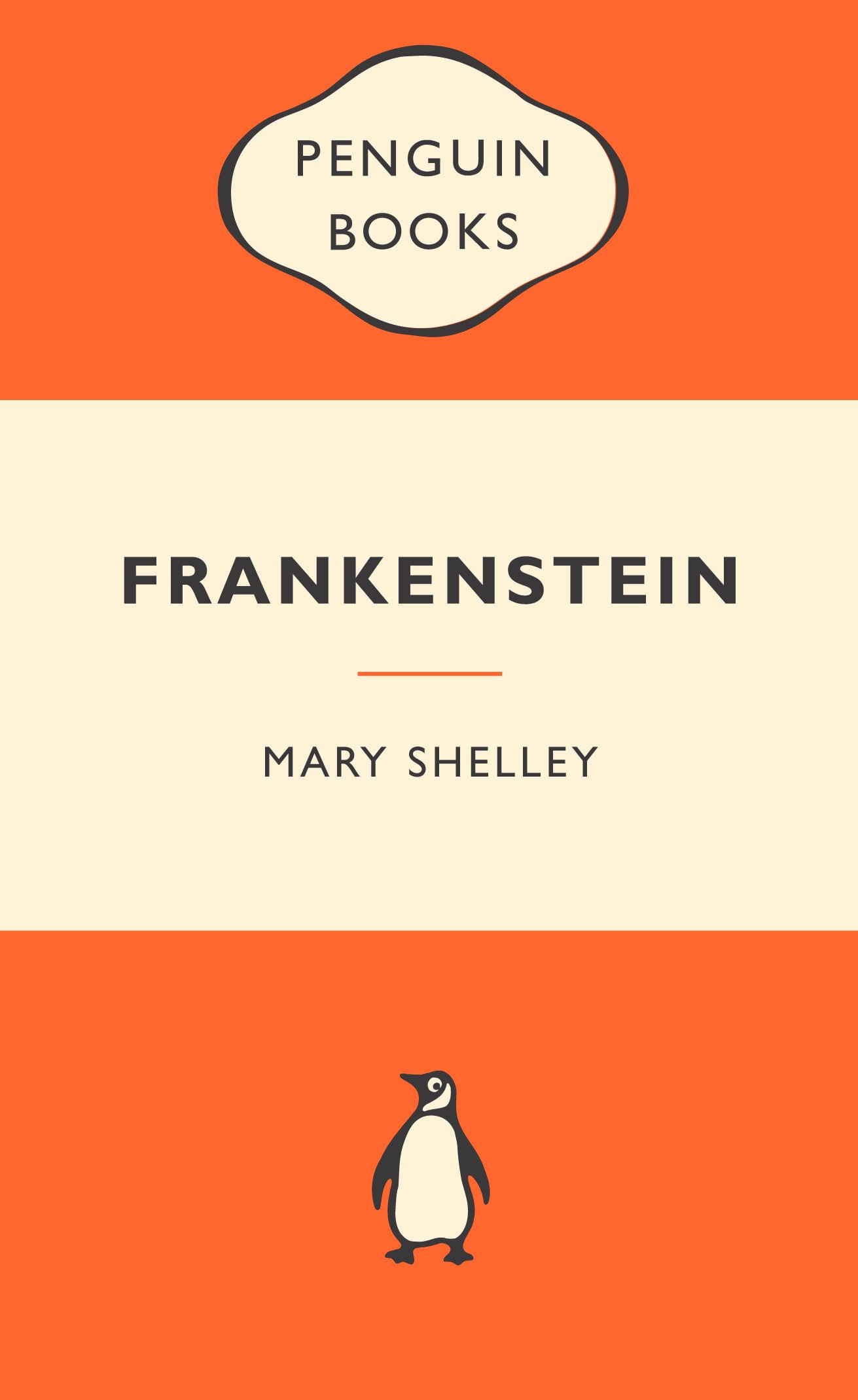Description from Goodreads:
Mary Shelley began writing Frankenstein when she was only eighteen. At once a Gothic thriller, a passionate romance, and a cautionary tale about the dangers of science, Frankenstein tells the story of committed science student Victor Frankenstein. Obsessed with discovering the cause of generation and life and bestowing animation upon lifeless matter, Frankenstein assembles a human being from stolen body parts but; upon bringing it to life, he recoils in horror at the creature's hideousness. Tormented by isolation and loneliness, the once-innocent creature turns to evil and unleashes a campaign of murderous revenge against his creator, Frankenstein.
Frankenstein, an instant bestseller and an important ancestor of both the horror and science fiction genres, not only tells a terrifying story, but also raises profound, disturbing questions about the very nature of life and the place of humankind within the cosmos: What does it mean to be human? What responsibilities do we have to each other? How far can we go in tampering with Nature? In our age, filled with news of organ donation genetic engineering, and bio-terrorism, these questions are more relevant than ever.
Frankenstein, an instant bestseller and an important ancestor of both the horror and science fiction genres, not only tells a terrifying story, but also raises profound, disturbing questions about the very nature of life and the place of humankind within the cosmos: What does it mean to be human? What responsibilities do we have to each other? How far can we go in tampering with Nature? In our age, filled with news of organ donation genetic engineering, and bio-terrorism, these questions are more relevant than ever.
--
I'm often petrified to start to read a classic because I fear that I don't know how to appreciate the brilliance of the writer. Yet, the appreciation came pretty easily with Frankenstein (those who have read the book probably understand this, while those who haven't read it yet: read it!). I found my copy of Frankenstein from our university's book sale costing only 60p. I already had it in my Kindle, but I never seemed to find time to start it. Now that I held an actual copy of the book in my hands, I remember thinking that if I bought it, I might actually read it. And this certainly was the case (print copies always work for me as a motivation to start reading unfamiliar novels).
The book first published in 1817 is ultimately a story about a man called Viktor Frankenstein who plays with the fire and eventually gets burned. By creating a living-dead creature, he disrupts the balance of the nature and the monster makes sure that Frankenstein pays for it. I must say right away that if you haven't read the book before, you might be surprised by it, as I was when I first read it: the book was not what I was expecting.
I enjoyed so incredibly much how the the structure turned out to be: there are 3 layers to the story, all told by a different narrator. One by a naive Englishman, one by ambitious Viktor, and one by the acceptance-seeking monster of Frankenstein. While the narrators are very different from each other, they all share a drive to achieve something. Something that gives a meaning to their lives. I found the narrators similarities as a brilliant paradox as they virtually were very different from each other with their backgrounds, personalities, and dreams. The hate-hate relationship between Viktor and his monster is what marks the book as one of my ultimate favourites. The symmetry of their suffering is something so tragic that I found it beautiful (yeah, I know it sounds cheesy, but I just enjoy books that aren't just about rainbows and unicorns).
The book's atmosphere changes from enthusiasm to horror, from horror to despair, and from despair to viciousness. The emotional scale of the book is something that I don't find in many books so well depicted. The emotions experienced by the characters are what most of us have experienced (but maybe not in similar situations as the characters I hope) and that's why the novel affected at least me so strongly. When Viktor falls to the depths of depression, I fall with him. The gloomy mood is further contributed by the writing style of Shelley. The text is mainly long monologues or descriptions; a little is relied on dialogues. This made the reading tiring from time to time as the writing format didn't vary much.
Even though Viktor is one of my favourite characters in the book, I got to emphasize that how complex character the monster is and how much my feelings towards him changed during the book. At some point, I pitied him from the bottom of my heart and at other times I loathed him because of his actions. But the funny thing is that even though the monster of Frankenstein is described as an unnatural creature, with his own narration the monster becomes the most human character in the story.
☆☆☆☆☆



I still need to read it. I hope I'll like it as much as you do :)
ReplyDeleteI hope too you'll love it. :) Thanks for commenting!
Delete